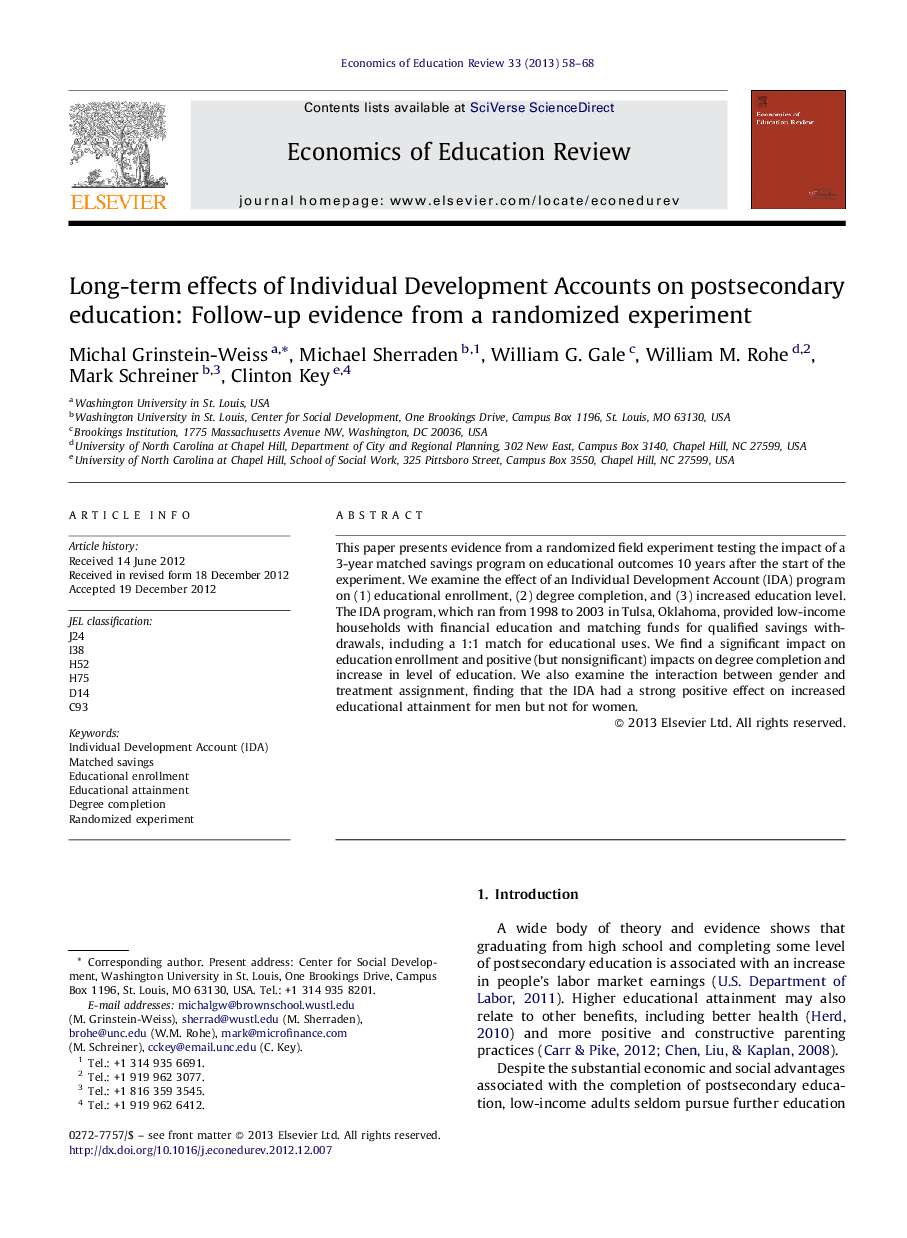| Article ID | Journal | Published Year | Pages | File Type |
|---|---|---|---|---|
| 354329 | Economics of Education Review | 2013 | 11 Pages |
This paper presents evidence from a randomized field experiment testing the impact of a 3-year matched savings program on educational outcomes 10 years after the start of the experiment. We examine the effect of an Individual Development Account (IDA) program on (1) educational enrollment, (2) degree completion, and (3) increased education level. The IDA program, which ran from 1998 to 2003 in Tulsa, Oklahoma, provided low-income households with financial education and matching funds for qualified savings withdrawals, including a 1:1 match for educational uses. We find a significant impact on education enrollment and positive (but nonsignificant) impacts on degree completion and increase in level of education. We also examine the interaction between gender and treatment assignment, finding that the IDA had a strong positive effect on increased educational attainment for men but not for women.
► Using an experimental design, we study the long-term impact of eligibility for an IDA on postsecondary education. ► IDAs impact education enrollment and add a positive nonsignificant impact on degree completion and increased education. ► IDA had a positive effect on degree completion and increased educational attainment for males but not for females.
